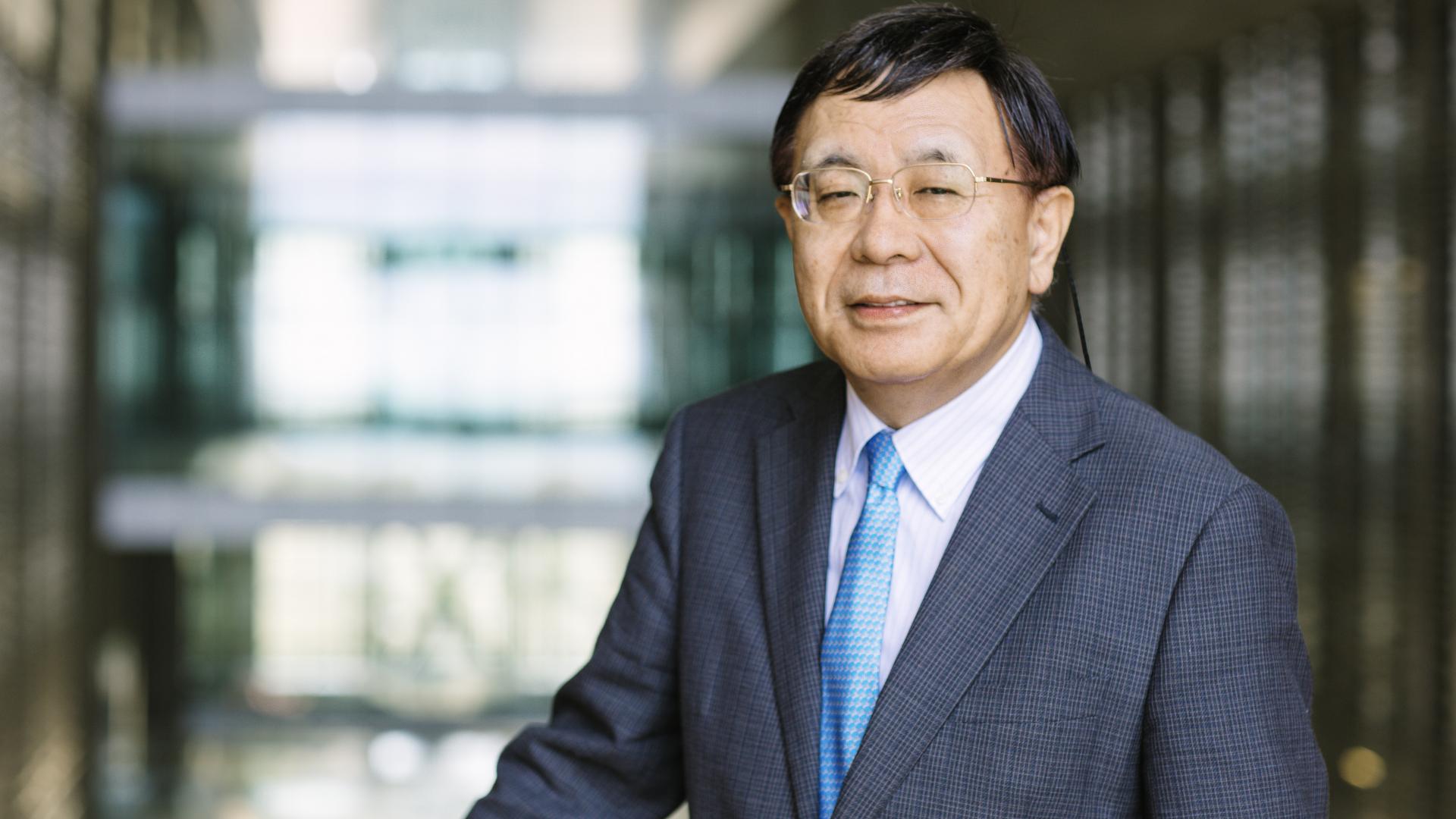Professor Takashi Gojobori elected ISCB fellow

Portrait of Dr. Takashi Gojobori, ISCB Fellow, Distinguished Professor of Bioscience at KAUST, and acting director of the University’s Computational Bioscience Research Center. Photo: KAUST
Dr. Takashi Gojobori, Distinguished Professor of Bioscience at KAUST and acting director of the University’s Computational Bioscience Research Center, has been elected as a Fellow of the International Society for Computational Biology (ISCB).
Since its founding in 1997, the ISCB has been a leading scholarly society for computational biology and bioinformatics, its members collectively having spent the past quarter century helping to advance the understanding of living systems through cutting-edge research.
The society plays a key role in promoting, representing and advocating for the field, using its influential voice in conversations with governments and key bodies responsible for scientific funding. From collating and distributing vital findings to supporting topical and regional communities of interest, the ISCB continues to help spearhead scientific progress by offering opportunities for professional development and leadership and providing a forum for networking and collaboration,
“Becoming a fellow of the ISCB is the highest recognition in the research field of computational biology,” said Gojobori. “I am incredibly honored. Computational biology isn’t simply about the exploration of biological phenomena; it also offers the power of prediction, which I find to be fascinating.”
Gojobori has helped to advance the field significantly in what has been an illustrious career to date.
After receiving his doctorate in theoretical population genetics from the Kyushu University in Japan in 1979, he joined the University of Texas Health Science Center as a research associate, and then as a research assistant professor. He went on to become vice-director and professor of the National Institute of Genetics (NIG) in Japan prior to joining KAUST.
Gojobori’s research interests include comparative genomics and gene expression of neural cells in sensory organs of various organisms, as well as the marine metagenomics of a diversity of microorganisms. Specifically, he aims to elucidate the evolutionary origin of the neural network and its application to synthetic biology for developments of bioenergy.
“When I was a PhD student, I realized how fascinating scientific exploration is,” Gojobori said. “Being in a position to discover facts of interest and significance earlier than anyone else in the world truly appeals to me.”
An esteemed career
Gojobori’s fellowship at the ISCB adds to a list of previous esteemed accolades, and he is recognized for this work by esteemed academic bodies the world over.
For example, in 2004-2005 he received the Salvatore Gold Medal award from Italy, and the Society Prize (Motoo Kumura Medal) from the Society of Evolutionary Studies, Japan.
In the years following he became a Foreign Honorary Member of the American Academy of Arts and Sciences, and a Fellow of the American Association for the Advancement of Science (AAAS) – both in 2006 – as well as a member of the Pontifical Academy of Science in the Vatican in 2007.
In 2009 Gojobori was awarded The Medal with Purple Ribbon from the Government of Japan, while in 2012 he was named a member of Academia Europaea. In 2013 Gojobori was made a Fellow of the World Academy of Science for the Developing Countries (TWAS), and in 2015 he was elected as an associate member of the European Molecular Biology Organization (EMBO).
Gojobori’s contributions extend into academic journals and publications – an arena in which he has developed a renowned reputation with more than 400 peer-reviewed publications in international journals on comparative and evolutionary genomics.
Alongside these accomplishments, he is the founding editor of Genome Biology and Evolution, editor-in-chief of GENE, editor of FEBS Letters, section advisor of BMC Genomics, associate editor of Molecular Biology and Evolution, and associate editor of PLoS Genetics. Further, he was an editor of the Journal of Molecular Evolution for eight years between 1995 and 2003.
Striving for societal betterment
Presently, Gojobori is working extensively on marine metagenomics in the Red Sea; the evolution of viral genomes; the rates of synonymous and nonsynonymous substitutions; positive selection; horizontal gene transfer; genomic evolution; and comparative gene expressions.
Asked about his works, he expressed particular excitement over his role in constructing the world’s largest gene catalogue, collecting and adding metagenomic data to the already available gene catalogue.
Previously he contributed to the DDBJ/GenBank/EMBL database construction, as well as the H-Invitational human gene database – resources he hopes will help to enhance the impact of computational biology, not only for the purpose of science but also society as a whole.
“The world is facing an information explosion right now,” he said. “In biology, and the life sciences in particular, we deal with big data by developing useful computational tools and constructing valuable databases. I have been lucky to work with colleagues and other KAUST faculty to conduct computational biology research, and hope that this work will lead to positive contributions for the Kingdom and world.”

